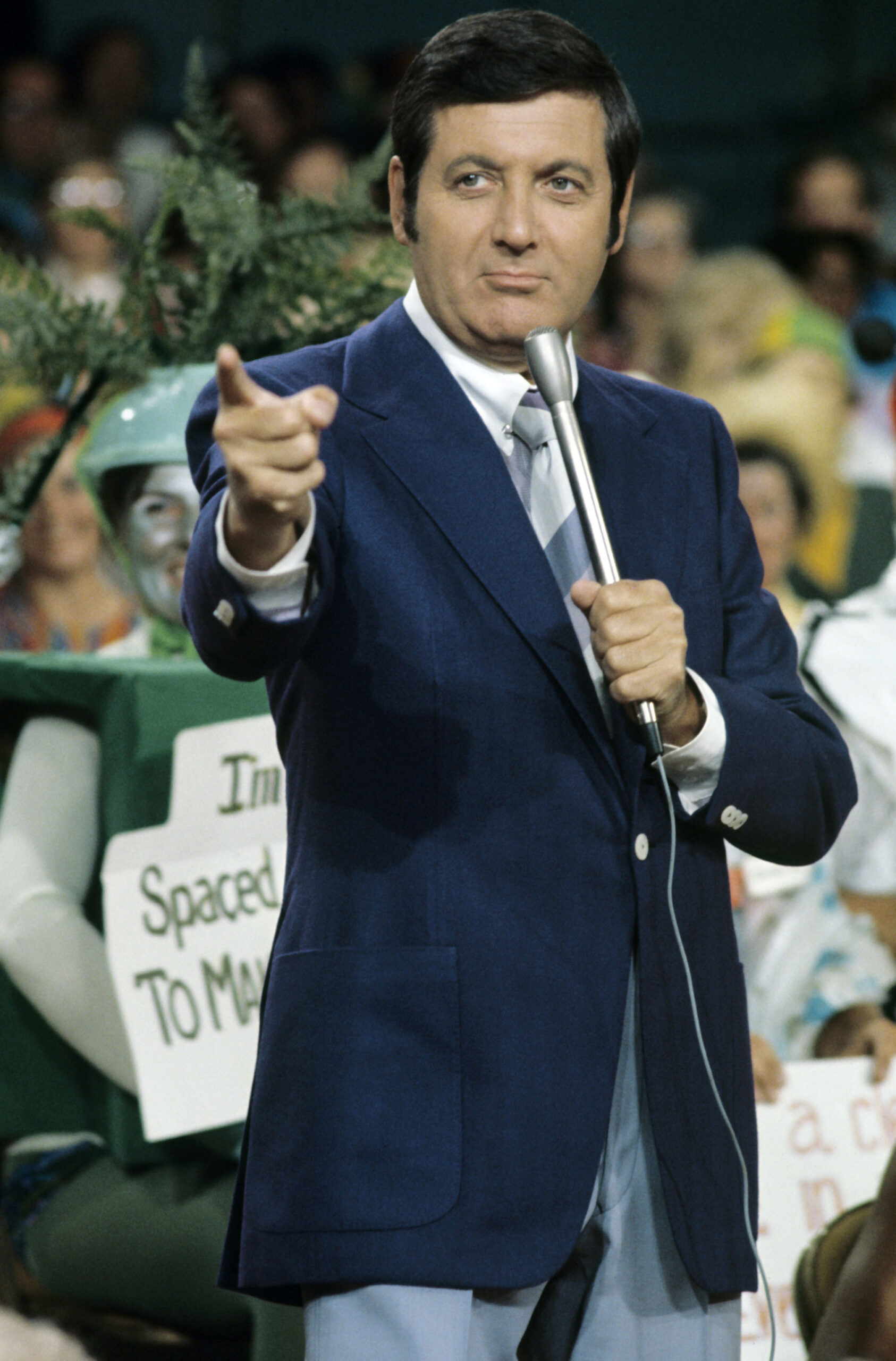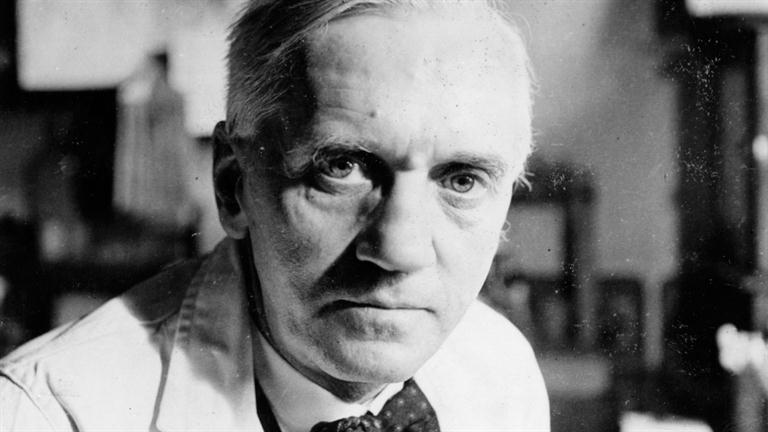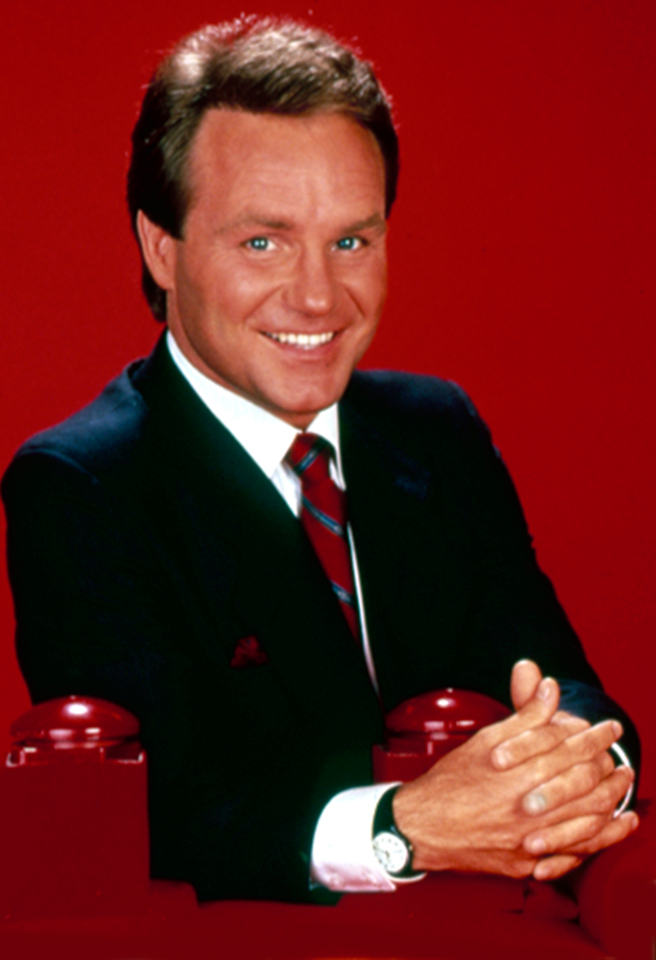
Game show hosts hold a unique and often cherished place in the tapestry of American television. They are the charming, friendly, and reassuring presences who guide contestants through nerve-wracking challenges, celebrate their triumphs, and console their losses, all while millions watch from home. For decades, these charismatic individuals became veritable fixtures in our living rooms, their smiles and catchphrases synonymous with comfort and entertainment. They fostered a sense of community, making us feel like part of the fun, part of the drama, and part of the quest for fabulous prizes.
Yet, for all their public warmth and ubiquity, the lives of many game show hosts often held quiet complexities, profound personal struggles, or ultimately concluded with a surprising lack of fanfare. While some achieved legendary status and received widespread tributes upon their passing, others, despite their immense contributions to pop culture, faded into obscurity or faced deeply personal tragedies that the public largely overlooked. This intriguing dichotomy between their vibrant on-screen personas and their often understated exits or hidden heartaches sparks a natural curiosity in those who remember them.
In this deep dive, we peel back the curtain on the lives of some of these beloved entertainers. We’ll explore the remarkable careers they built, the signature quirks that endeared them to millions, and the sometimes-shocking details surrounding their departures from the stage of life, or the personal hardships they navigated far from the spotlight. Prepare to discover the untold stories behind the familiar faces, unearthing the legacies and quiet goodbyes of the game show hosts we thought we knew.

1. **Richard Dawson**Born Colin Lionel Emm in England in 1932, Richard Dawson began his career as a stand-up comedian in the late 1940s. His talent eventually led him to American sitcoms, notably as Corporal Newkirk on “Hogan’s Heroes,” which ended its run in 1971. This period laid the groundwork for his pivot into television game shows, where his quick wit and impish personality found a perfect home.
The 1970s proved to be Dawson’s golden era. He became a fixture on “Match Game,” appearing in nearly 1,400 episodes across both its daytime and nighttime iterations. Simultaneously, he took on hosting duties for a revival of “Masquerade Party” and, most famously, “Family Feud.” This show, where two families competed to guess popular survey answers, became an absolute phenomenon under his stewardship.
For nine years, Dawson led “Family Feud” to unprecedented success, at one point making it both the most-watched daytime program and the most-watched syndicated game show. This solidified his status as the highest-earning host in his genre. With as many as 11 episodes produced weekly, Dawson developed several iconic, if sometimes controversial, signature bits, including his familiar banter with male contestants and his almost ritualistic kissing of female participants.
Despite his immense fame, the news of Richard Dawson’s passing in June 2012 came with less fanfare than expected. His son, Gary, announced his death at UCLA Medical Center. The cause was attributed to the effects of cancer of the esophagus, and he was 79 years old. While his contributions to game show history are undeniable, the immediate public reaction to his death, as noted, “faded fast,” leaving many to later learn of his passing with a sense of belated shock.
Read more about: Jill Sobule, Iconic ‘I Kissed a Girl’ Songwriter, Dies at 66: Unraveling the Tragic House Fire and Her Enduring Musical Legacy

2. **Monty Hall**Monte Halparin, a Canadian native, abandoned a scientific degree in the 1950s to become a performer. Adopting the stage name Monty Hall, he moved to the U.S. and, in 1960, landed his first game show hosting role on CBS’s “Video Village,” a real-life re-creation of a board game, which aired for three years.
Hall’s truly iconic moment arrived when he joined ABC, co-creating “Let’s Make a Deal” with writer Stefan Hatos. This innovative game show revolved around bartering and trading, with audience members in wild costumes chosen to play games and negotiate for prizes. The show became an instant cultural touchstone, running until 1976. Hall would ultimately host thousands of episodes across different productions, solidifying his status as a game show legend.
The influence of “Let’s Make a Deal” even inspired “the Monty Hall problem,” a famous math brainteaser using the show’s three-door setup to illustrate counterintuitive probability. Beyond his on-screen antics, Hall quietly dedicated himself to philanthropy, raising over $1 billion for charity, a remarkable feat largely unknown to the public during his lifetime.
In September 2017, Monty Hall passed away at his home in Beverly Hills, at the age of 96, due to heart failure. Despite his immense impact on daytime television, the tributes paid to him “seemed modest.” This quiet departure for a man who shaped the “zany side” of television and made such significant charitable contributions highlights the often-understated farewells for even the most influential figures in entertainment.
Read more about: Where Do You Really Draw the Line with Restomods? A Deep Dive into the Soul of Modified Classics

3. **Regis Philbin**While most widely recognized as a talk show host, Regis Philbin’s remarkably prolific television career was deeply intertwined with game shows. By 1975, he was a well-known TV personality from previous acting and announcing roles. Despite his established presence, early game show ventures, “The Neighbors” and “Almost Anything Goes,” proved to be commercial flops.
Following these setbacks, Philbin co-hosted local morning talk shows, one of which became “Live! With Regis and Kathie Lee” in 1988, a show that endured for decades. This immense popularity led to many other engagements, including his iconic role as the host of ABC’s “Who Wants to Be a Millionaire” in 1999. This show, with its progressively difficult questions and unprecedented payouts, quickly became a sensation.
Philbin’s distinctive style and his now-inescapable catchphrase, “Is that your final answer?” resonated with audiences, earning him a Daytime Emmy Award. “Millionaire” was so captivating that ABC aired it multiple nights a week, with its broadcasts securing the top three most-watched spots during the 1999-2000 TV season. His unparalleled commitment to television also earned him a Guinness World Record for appearing on TV more than anyone else.
Beyond professional triumphs, Regis Philbin endured profound personal hardships. He experienced the devastating loss of his only son, Daniel Philbin, who died at 49 from natural causes. Daniel, born with a spinal cord defect and a double leg amputation, was a hero who worked at the Pentagon and was recognized for his actions after 9/11. Further grief came with the loss of his brother, Frank Philbin, who passed away in 2007. Regis himself battled numerous health issues, including high cholesterol and bypass surgery in 2007. He eventually passed away in July 2020 at 88 due to heart issues, his family’s statement noting his death from “natural causes,” underscoring the quiet end to a life lived so publicly yet marked by deep personal trials.
Read more about: Regis Philbin’s Enduring Legacy: An In-Depth Look at the Life and Times of Television’s Hardest Working Icon

4. **Alex Trebek**Alex Trebek, the authoritative and impeccably measured host of the modern “Jeopardy!” since its revival in 1984, served as an unflappable presence until October 2020. He was the calm in the storm, coolly reading out “answers” — clues presented as statements — and guiding contestants to phrase their responses “in the form of a question,” offering gentle admonishments when they forgot. His steady hand and intellectual gravitas defined an era of quiz show television.
While “Jeopardy!” became his longest-running and most iconic show, Trebek’s career as a game show host was extensive and varied. A native Canadian, he first honed his craft on 1960s Canadian game shows like “Strategy.” After relocating to the U.S. in the 1970s, he fronted a series of quiz shows, including “The Wizard of Odds” and “The $128,000 Question.” Even concurrently with his “Jeopardy!” duties, Trebek hosted “To Tell the Truth” and “Classic Concentration.” His exceptional skills were recognized with eight Emmy Awards for outstanding game show host.
In a poignant 2019 YouTube video, Trebek candidly announced his diagnosis with stage IV pancreatic cancer. Despite the grim prognosis, he conveyed a resilient spirit, assuring fans of his intent to “survive the disease” because his “Jeopardy!” contract bound him for three more years. This public declaration of his battle resonated deeply with viewers, who admired his strength and determination to continue his work despite his illness.
True to his word, Trebek continued to host “Jeopardy!” with remarkable fortitude. He filmed what would be his final episodes in October 2020, just eight days before his passing. Alex Trebek died at the age of 80, bringing an end to an era of television. While his death was widely reported and mourned, a testament to his beloved status, the quiet dedication he displayed in his final months, working until nearly the very end, remains a powerful and poignant part of his legacy.

5. **Chuck Woolery**Chuck Woolery cultivated a persona that was suave, sunny, and self-aware of his “innate corniness” as he became one of America’s most recognizable game show hosts for decades. His career spanned from the mid-1970s well into the 2000s, almost continuously leading one television show or another. Before hosting, Woolery made appearances as a musician in the 1960s, with a gig on “The Merv Griffin Show” ultimately paving the way for his hosting debut.
In 1975, Woolery landed his first major hosting role on the original, NBC daytime version of “Wheel of Fortune.” He guided the popular word puzzle game for six years before a pivotal salary dispute led to his departure in 1981. He had requested his weekly salary of $5,000 be doubled, a demand the network wouldn’t meet. This departure opened the door for him to host “Scrabble” and the highly popular “Love Connection.” The latter, a “he said-she said” relationship show, ran for over 2,000 episodes between 1983 and 1994, showcasing his enduring appeal.
In the later stages of his career, Woolery continued hosting “Greed” in 1999 and GSN’s “Lingo” from 2002 to 2007, before making a notable turn toward conservative punditry. However, his life was not without profound personal sorrow. In 1986, he experienced the devastating loss of his son, Chad Woolery, who was tragically killed in a motorcycle accident at 19. Officials reported that Chad’s motorcycle hit a divider and overturned, and despite a helmet being at the scene, he had apparently not been wearing it.
Chuck Woolery also faced challenges in his personal relationships, including his parting ways with ex-wife Teri Nelson. Despite difficulties, Woolery maintained a remarkably philosophical and positive outlook, stating, “My philosophy is, you can accomplish nothing with anger. You can only accomplish things through love and affection.” Chuck Woolery passed away at his home in Texas in November 2024, at the age of 83. His long career, marked by both professional success and deep personal loss, concluded quietly, a testament to the complex lives lived by those who brought so much public joy.
Continuing our exploration of the game show hosts whose vibrant on-screen lives often masked quiet struggles or ended with surprisingly little public acknowledgment, we delve into the stories of seven more beloved figures. These personalities, while fixtures in countless homes, faced profound personal hardships, career controversies, or simply had their farewells understated by the fast-paced world of entertainment. Their legacies, however, remain etched in television history, offering a fascinating glimpse into the human side behind the brightest smiles.

6. **Peter Marshall** Peter Marshall, a truly versatile performer, excelled across various entertainment formats long before he became a household name in game shows. In the 1950s and 1960s, he navigated the burgeoning landscape of television as a singer, actor, and even as one half of the comedy duo Marshall and Farrell, frequently appearing as a talk show guest. This broad experience honed his natural charm and quick wit, preparing him for the role that would cement his legacy.
His defining gig arrived in 1966 when he took the reins of “The Hollywood Squares” on NBC’s daytime schedule. For a remarkable 15 years, Marshall effortlessly guided contestants through the tic-tac-toe format, creating a comfortable atmosphere as they bantered with celebrity panelists who delivered often outlandish, yet sometimes true, answers to questions. This iconic show became known for some of the most bizarre responses ever given by contestants and celebrities alike.
Marshall’s adept handling of “The Hollywood Squares” earned him four Daytime Emmy Awards for best game show host, solidifying his place in game show history. His success on the show also propelled him back into episodic television, where he acted on popular series like “Fantasy Island,” “The Love Boat,” and “WKRP in Cincinnati.” Later in his career, he continued to appear as a guest of honor or host on various shows, including “Fantasy,” “Yahtzee,” “Family Feud,” and even a newer iteration of “Hollywood Squares.”
Despite his long and celebrated career, Peter Marshall’s passing in August 2024 at his home in Los Angeles due to kidney failure, at the age of 98, subtly slipped past widespread notice. It was an understated end for a man whose sharp timing and kind charm had once filled millions of homes daily, leaving a quiet void that primarily resonated with industry insiders and devoted fans. His legacy endures through reruns, reminding us of his significant contributions.
Read more about: 14 Hollywood Deaths That Changed Everything: Prepare to Be Amazed by Their Lasting Impact!

7. **Jim Lange** Jim Lange embarked on his broadcasting journey as a disc jockey before fate, in the form of game-show producer Chuck Barris, intervened in 1962. Discovered while working as an announcer and sidekick on “The Tennessee Ernie Ford Show,” Lange was offered a groundbreaking opportunity: to host “The Dating Game.” This innovative matchmaking series, which aired from 1965 to 1980, tasked a single person with choosing from three eligible romantic partners based solely on their answers to revealing questions.
Lange brought his quick wit and charming demeanor to “The Dating Game,” often making contestants blush with his probing inquiries. He not only hosted the provocative series but also sometimes served as a chaperone on the trips awarded to the winning couples, adding an extra layer of engagement. His comfortable and engaging style ensured the show’s enduring popularity throughout its lengthy run, eventually known as “The New Dating Game.”
His career wasn’t limited to just one iconic show, however. Throughout the 1970s and 1980s, Lange demonstrated his versatility by helming a variety of other popular game shows. His impressive resume included hosting roles on “The New Newlywed Game,” “$100,000 Name That Tune,” “Spin-Off,” “Oh My Word,” and “Hollywood Connection.” Each role showcased his adaptable hosting skills and his ability to connect with audiences.
Jim Lange passed away from a heart attack at his home in Mill Valley, California, in February 2014, at the age of 81. While his versatile broadcasting career spanned decades and left an indelible mark on game show history, his death, much like those of many other cherished hosts, marked a quiet close to a chapter. It was an end that resonated deeply within dedicated game show circles but received less fanfare than his widespread influence might suggest.
Read more about: Echoes of Eternity: 14 Music Legends We Lost Too Soon, Whose Undying Influence Still Resonates

8. **Art Fleming** The original “Jeopardy!” host, Art Fleming, presided over what was, in its initial incarnation from 1964 to 1975, a notoriously tough trivia show. Airing as an NBC daytime series, it challenged contestants with arcane and academic subject matter, demanding a host with a dignified and scholarly presence. Creator Merv Griffin found precisely that in Fleming, an actor who had previously portrayed authority figures in early TV dramas and hosted variety and game shows like “The Vaudeville Show” and “Stump the Stars.”
Fleming’s steady hand and intellectual gravitas were perfectly suited to the show’s demanding format. He hosted the first successful run of “Jeopardy!” as well as the short-lived late 1970s revival, “The All New Jeopardy!,” and even a radio version of the classic TV game show “College Bowl.” His association with “Jeopardy!” was so profound that even after Alex Trebek took over the syndicated revival in 1984, Fleming remained inextricably linked to the original.
Notably, Fleming himself turned down the hosting slot for the 1984 “Jeopardy!” revival, reportedly due to disagreements over format changes. He was deeply committed to the original style he had defined. Despite this, his iconic status meant he made dozens of appearances as a host of a live version at conventions and events, and even popped up for cameos as himself in the film “Airplane II” and “Weird Al” Yankovic’s music video for “I Lost on Jeopardy.” These appearances underscored his lasting cultural impact and his inseparable connection to the quiz show.
Art Fleming died at his home in Crystal River, Florida, in April 1995, at the age of 70, following a pancreatic cancer diagnosis. His passing occurred years before Alex Trebek’s long tenure reshaped the show’s modern image, and it closed a significant chapter in game show history with a quiet finality, largely overshadowed by the burgeoning success of the new “Jeopardy!” His legacy, however, is that of the original, stately guide through one of television’s most enduring intellectual challenges.
Read more about: The Final Chapter: ‘Ketamine Queen’ Jasveen Sangha’s Guilty Plea in Matthew Perry’s Tragic Death

9. **Ray Combs** Ray Combs, a former missionary and furniture salesman from the Midwest, took a leap of faith in 1982, moving to Los Angeles to pursue a career in stand-up comedy. His comedic talent quickly opened doors, leading him to gigs as an audience warm-up act for popular sitcom tapings like “The Facts of Life” and “The Golden Girls.” His appearance on “The Tonight Show” proved to be a pivotal moment, leading to a significant opportunity.
In 1988, Combs signed a deal to host a revival of “Family Feud,” a show that had only been off the air for three years. He quickly earned a reputation for his quick wit and excellent rapport with the audience, making the show his own. For six years, Combs skillfully guided families through the survey-based competition, bringing laughter and excitement to millions of viewers.
However, his time on “Family Feud” came to an abrupt end in 1994 when he was replaced by the original host, Richard Dawson. Following this departure, Combs went on to host a season of “Family Challenge,” a “Double Dare”-like series, and the brief-run show “The Love Psychic.” These ventures, however, did not achieve the same level of prominence as his “Family Feud” tenure.
Ray Combs’ life took a tragic turn after enduring severe injuries in a 1994 car accident, which left him in continuous pain. His personal struggles escalated, culminating in the end of his marriage with a second divorce filing after a reconciliation attempt failed. In June 1996, after telling a friend he planned to hurt his estranged wife, and following an apparent suicide attempt, police admitted him to Glendale Adventist Medical Center for psychiatric evaluation. Tragically, at just 40 years old, Ray Combs died by suicide the following morning, a shocking and devastating loss that stunned colleagues and fans alike, underscoring the hidden depths of personal struggle behind a public smile.
Read more about: The Enduring Mysteries: 15 Iconic Stars Whose Unexpected Deaths Left the World in Shock

10. **Jack Narz** Jack Narz, a name synonymous with warmth and precision in broadcasting, cultivated a respected career that included hosting “The Cross-Wits” and becoming a familiar voice on “Wheel of Fortune” in the 1980s as a skilled announcer. Yet, his career was also significantly marked by one of television’s earliest and most impactful controversies: the 1950s quiz show scandals, specifically involving the program “Dotto,” which he hosted.
“Dotto” was unfortunately one of the many game shows of the era found to be rigged, and it was swiftly canceled. Crucially, Narz himself was not implicated in the scheme. As game show expert and college professor Steve Beverly recounted to the Los Angeles Times, “Jack was called to give a deposition before the grand jury investigating. He passed the polygraph test and was completely exonerated.” Narz discovered the rigging accidentally when a future contestant found answers in a woman’s purse in the dressing room.
Despite his innocence, the shadow of the “Dotto” scandal regrettably followed Narz throughout his professional life. He revealed in an interview that he believed the controversy cost him certain gigs later in his career, impacting opportunities even though he had no involvement in tampering with the show’s outcome. His brother famously conveyed his profound disappointment, stating he “was crushed” and “just stunned” by the betrayal and its lingering effects.
Narz continued to build a steady career after “Dotto,” hosting shows like “Video Village,” “Seven Keys,” and “I’ll Bet,” among others. He cemented his charm with a spontaneous on-air joke that evolved into his signature catchphrase, further endearing him to audiences. Jack Narz passed away in 2008 at the age of 85 from stroke complications, closing a quietly influential chapter in broadcasting. His death, while recognized within the industry, did not generate widespread public notice, reflecting the subtle end to a career marked by both talent and the unjust burden of a scandal he didn’t create.
Read more about: Unpacking 2024’s EV Landscape: The 10 Most Reliable Electric Vehicles and the Dynamics Driving Record Sales
The stories of these game show hosts remind us that behind every cheerful smile and perfectly delivered cue card lay a human being with a rich, often complex, inner life. While they brought boundless entertainment and moments of thrilling competition into our homes, many navigated profound personal sorrows, unexpected career setbacks, or quietly exited the stage of life without the grand finale one might expect. Their legacies, however, are far from forgotten by those who remember them, serving as poignant footnotes in the vast, captivating history of television, urging us to look a little closer at the familiar faces we welcome into our lives.



